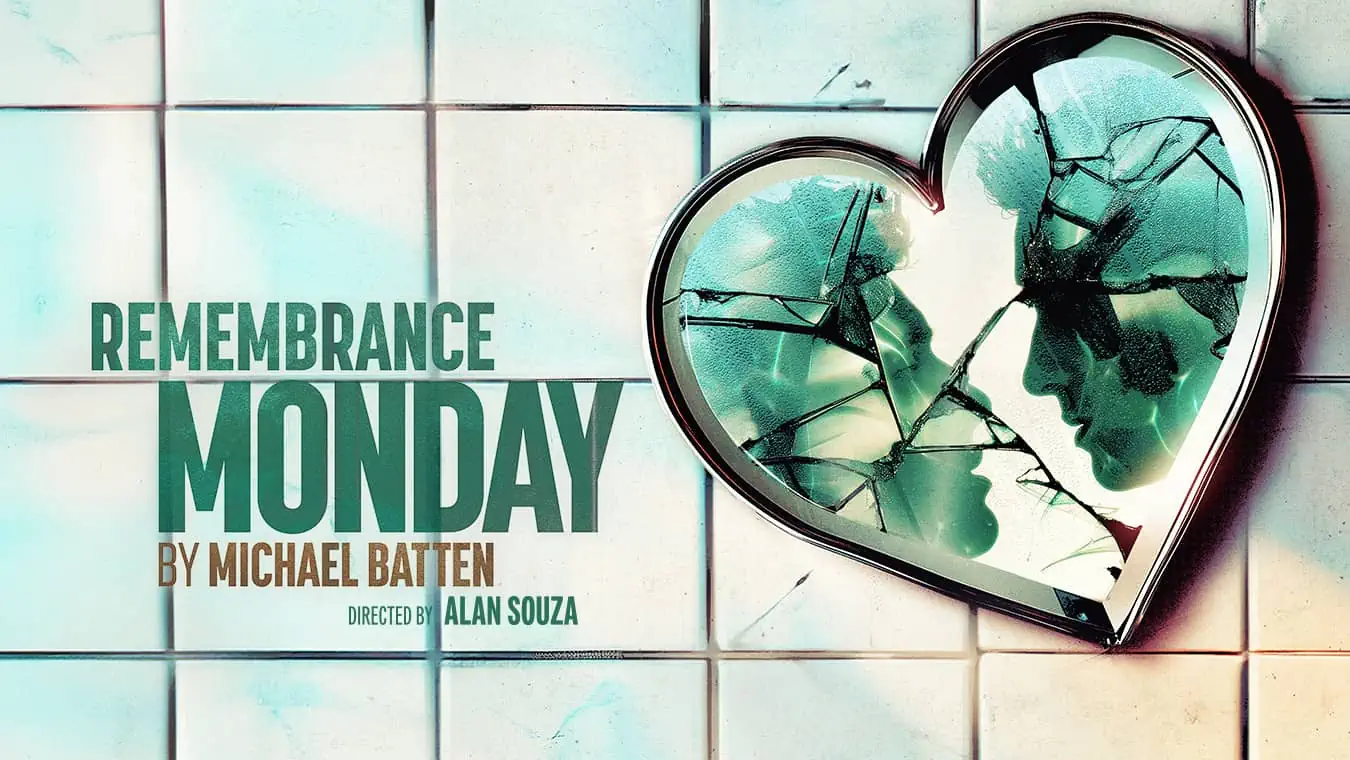Given the number of LGBTQ+ people involved in the performing arts QX is lending the organisers of this open letter a platform in order to make an important statement …
__________________________
This is a letter to self-employed and freelance theatre and performance makers in the UK. To the actors, playwrights, directors, choreographers, stage managers, designers, stage crews and set-builders to name just a few.
We really miss being with you during this period of lockdown. Making theatre and performance is a collaborative endeavour, so we are particularly affected by having to be apart from one another right now. We’re not able to come together, in the same space, to share the experience of a live performance. We’re not able to practise and enjoy our artform in its most basic form.
It’s now looking increasingly likely that won’t be possible for months to come, and we recognise that many freelancers face real uncertainty about if and how they will be able to continue to work in theatre. 70% of people who work in theatre and performance in the UK are freelance or self-employed, and it’s for this workforce, in all its diversity and complexity, that the impact of the current situation is most acute.
During these past weeks we have had conversations with many of you to understand your needs and the ways you have been affected. We are writing to express our support for you, and to lay out some practical steps we are taking to improve the situation based on these conversations.
As well as exploring ways of producing work with freelancers during lockdown, and using this time to develop new projects with freelancers for the future, we are also are working together to coordinate our response to the government, to articulate clearly what we can offer and what we need.
Most urgently, we are calling for the Self-Employment Income Support Scheme to be extended in line with furloughing, for all self-employed workers, and in the specific case of theatre and performance workers, until theatres are able to safely reopen. We also want to see criteria removed from the scheme which are stopping legitimate and much-needed claims.
Some of you are already involved in these conversations. We welcome your voices and need to hear from more of you in the conversations to come. Your unique networks, skillsets, perspectives, and ideas are vital to the entire sector, and we need to work with you in our response to this crisis.
Each of the organisations who’ve signed this letter are committed to reaching out to their family of self-employed and freelance theatre makers; listening to how this is affecting your work and lives, and to your needs and ideas for the future.
More than that, we want to facilitate the establishment of a national task force of self-employed theatre and performance makers. The purpose of the task force is to strengthen the influence of the self-employed theatre and performance community. It would create ongoing points of connection between freelancers and organisations, and amplify the voice of the self-employed in the conversations to come. To help establish the task force, each of the organisations signing this letter will support a freelancer to join the group, ensuring they are paid for their time.
We want to offer a message of hope and solidarity. Our well-practised ability to work together, to form connections, and build relationships will help us through this. One day, hopefully soon, we will all be able to meet together, as people have done for centuries, in a shared space, for a shared experience. In the meantime, we remain committed to working for you and with you towards a sustainable future for theatre and performance.
Signed,
Access All Areas, Action for Children’s Arts, The Almeida Theatre, ArtsAdmin, The Actors Touring Company, Battersea Arts Centre, Birmingham Repertory Theatre, Boundless Theatre, Brighton Festival, Bristol Old Vic, Brixton House, The Bush Theatre, Chichester Festival Theatre, China Plate, Contact, Dance Umbrella, Derby Theatre, Eden Court Highlands, English Touring Theatre, Fio, Fuel, Gate Theatre, Graeae, HOME, Improbable, Kiln Theatre, Leeds Playhouse, Leicester Curve, The National Theatre, National Theatre of Scotland, National Theatre Wales, National Youth Theatre of Great Britain, The New Wolsey Theatre, Northern Stage, Nottingham Playhouse, One Dance UK, Paines Plough, Rose Theatre Kingston, Royal & Derngate, The Royal Court Theatre, The Royal Shakespeare Company, Sadler’s Wells, Sheffield Theatres, Spare Tyre, Talawa, Tangled Feet, The Yard, Theatre Peckham, Theatre Royal Plymouth, Tiata Fahodzi, Yellow Earth, 1927
_______________________
Why is this needed?
70% of our performing arts companies will be out of business before the end of this year. More than 1,000 theatres around the country will be insolvent and have to shut down this year, unless government intervenes with a rescue package.
More than 70% of the theatre and performance workforce is self-employed (SOLT, March 2020). 70% of freelance workers were already worried in March 2020 that they wouldn’t be able to pay bills (BECTU survey). A survey revealed that 60% of creative freelances predict their income will more than halve in 2020, and more than 50% of freelancers who responded to a snap poll have already had 100% of their work cancelled (Creative Industries Federation).
Who is the letter to?
It is to everyone who works in the theatre and performance industry in the UK who is self-employed or freelance. The self-employed are in an urgent and acute situation right now, and the situation will only get worse unless they are provided with much needed financial security and representation in conversations about the survival and future of our theatre and performance industry. We also recognise that structural inequalities in our sector and in our society, and the specific implications of COVID-19 itself for individuals within our industry, both contribute to a situation where this crisis is and will continue to be more acute for some than others. For example, but not limited to, D/deaf and disabled freelancers in our industry who face even greater challenges, of long-term shielding, managing their social care and navigating complex benefits issues such as Access to Work. Whether you have been a freelancer for a number of years or are just starting out (and therefore unable to access government support) we are addressing this letter to all those who are self-employed and freelance in our sector.
Who is it from?
So far, it is from all the organisations signed up at the bottom: these range from the large-scale to the small-scale, from producing companies to venues, from Cornwall to Inverness. Other theatre and performance organisations who would like to sign up to the letter, and commit to helping the freelancers’ task force, are still welcome to join. They can email [email protected] to sign up or with any questions.
What will the task force do?
The idea is that each freelancer will be able to use their time to co-ordinate wider conversations with freelancers in their area and/or specialism, join regular meetings with the rest of the task force, work on ideas with and for the task force, and to attend other meetings and events on behalf of the task force. We imagine that the task force will quickly establish its own agenda, set its own mission and undertake its own discussions, listening to an even wider group of freelancers. We hope all of this will then feed in to other sector conversations, including with producing and touring companies and venues.
How will this group feed into the wider work in the theatre sector?
As well as connecting with wider networks of freelancers, and with organisations across the sector, this group of freelancers will form a working group for Society of London Theatre and UK Theatre, so information, ideas and needs can be fed directly in to discussions with government, and the 25 charities being co-ordinated by SOLT and UK Theatre to support everyone in the industry. SOLT and UK Theatre has also opened up its information webinars to all freelancers, and the next series will be publicised through this group as well.
How will the task force be set up?
Each organisation has committed to paying one self-employed theatre/performance maker for one day per week for 3 months – June, July and August. The idea is that this freelancer will be able to use that time to co-ordinate wider conversations with freelancers in their area and/or specialism, to join regular meetings with the rest of the task force, to work on ideas with and for the task force, and to attend other meetings and events on behalf of the task force. Engagement, contracting and payment of each member of the task force will be undertaken by the organisation supporting them. They will be paid a day rate in line with that organisation’s standard policy for a freelancer, in accordance with union guidelines. Selection processes will differ from one organisation to another, and we will work together to strive for representation, in all its forms, across the group. This work is underway: the task force will start work in June.
Why now?
The situation for the self-employed in the theatre and performance sector is acute. We need to increase the flow of information and ideas and amplify the voices of the self-employed in urgent conversations about the survival and future of theatre and performance in the UK now. This means we will almost certainly make mistakes in this process, and we will learn from them, and keep evolving. The situation is not static, and so our response is also a developing process.
How do I find out more / get involved?
If you’re an organisation who wants to get involved, your first point of contact is Kate on [email protected]. It is not too late to sign up.
If you’re self-employed and want to get involved, contact one of the organisations who have signed the letter to find out how to connect with them as a freelancer, by checking their website and social media channels for more information.
If you’re a funder or donor who would like to support this initiative, your first point of contact is Kate on [email protected].
How can these organisations afford to pay for a freelancer at a time like this?
Many can’t, and all are facing severe financial challenges, but it’s important so we have all committed to doing so. Our organisations and our industry cannot exist without its freelancers. We have to work together, as we always have done, and even more so now: we need each other’s energy in the fight we have on our hands to survive and we need each other’s creative ideas to build back better.
Why is it only one paid freelancer per organisation?
We would all like to do more, but this is where we are right now. Paying just one freelancer now is, we hope, a stepping stone to a bigger vision of inclusivity, equality and empowerment.
What about freelancers who aren’t connected to any of these organisations?
We appreciate that this is only one initiative, and it cannot solve all of the challenges we face today. We need more routes for freelancers to be able to access information and have their voices heard. There are many organisations working on this, including unions like BECTU and Equity, and organisations like SOLT and UK Theatre and IPSE, who freelancers can also connect with, and many brilliant initiatives set up by freelancers all across the country.
Why is it only for theatre and performance makers?
Because the impact of the coronavirus pandemic on theatre and performance in the UK is catastrophic, due to the nature of the process of making work and the process of sharing it with an audience in proximity. Without significant and immediate investment from government, 70% of performing arts companies will go out of business this year and more than 1,000 theatres will be insolvent. Already, self-employed theatre makers have lost all their work and income for this year. The organisations cannot survive, and neither can the individuals.
How was this letter written?
We listened to the self-employed theatre makers in our communities and they told us they needed three things: access to information and support, financial security and advocacy, and inclusion in conversations about survival and the future. This letter seeks to work towards addressing those three needs.











